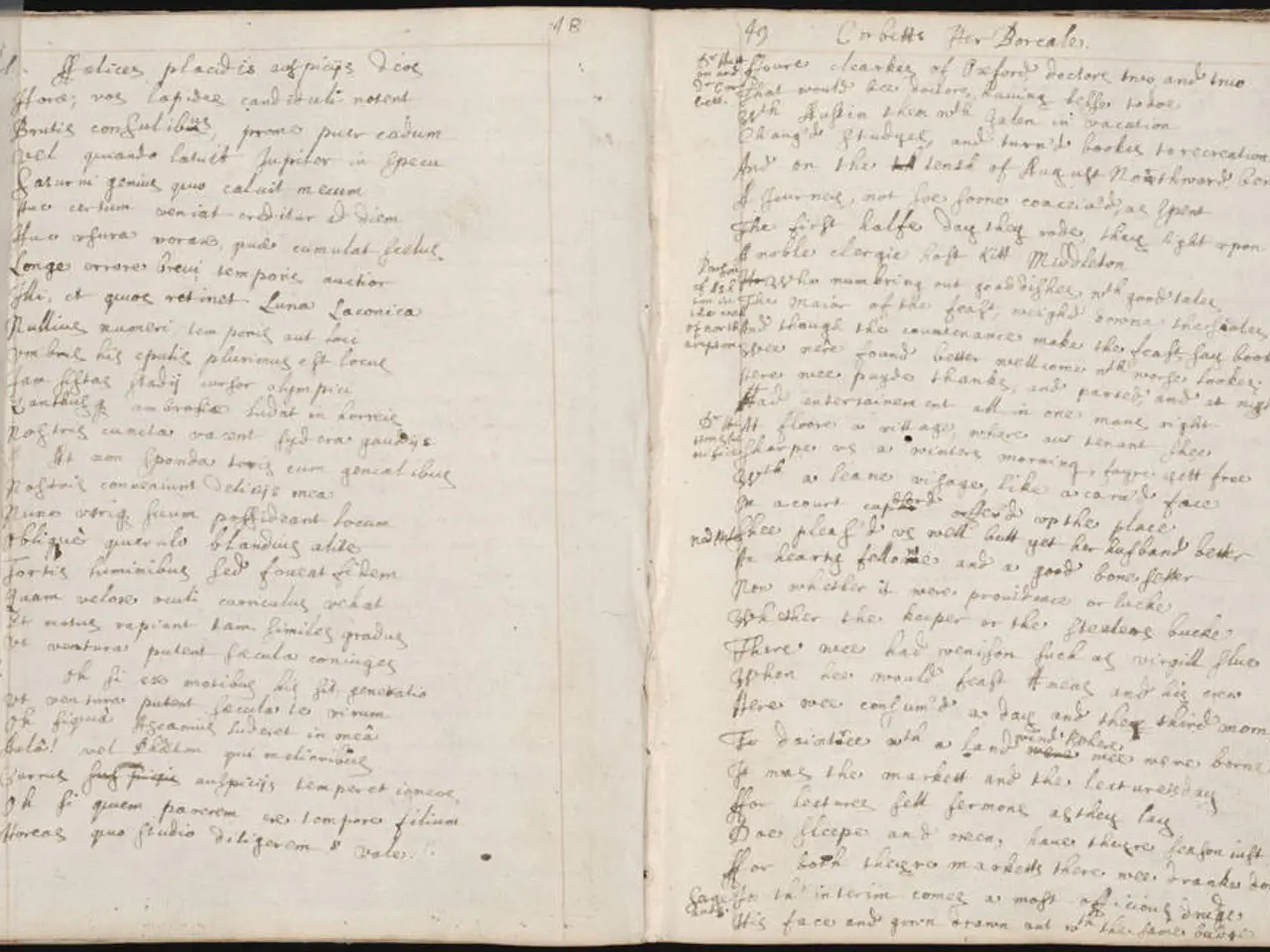Lay theologist and acclaimed author, Sebastian Lotzer, known for penning the influential Memminger twelve articles.
Sebastian Lotzer, born in Horb in 1490, was a significant figure during the German Peasants' War in the early 16th century. A furrier by trade, Lotzer rose to become an important scribe and spokesperson for the peasant rebels.
Lotzer is best known for drafting the "Twelve Articles," a set of demands made by the peasants during the uprising. The Twelve Articles outlined the peasants' grievances and requests, reflecting calls for social, economic, and religious reforms.
Some of the main demands included the right of peasants to choose their own pastors and receive sermons in German, the abolition of serfdom and certain feudal dues, fairer tithes and taxes, and the right to communal ownership or at least the right to use village common lands. The demands also included the right to fair legal processes and justice, the restoration of the rights of village communities in hunting and fishing, and the abolition of tithes and taxes.
These demands were deeply influenced by Reformation ideas and called for a more just and equitable social order. The Twelve Articles spread rapidly and are considered one of the earliest formulated statements of human rights and social justice in Europe.
In addition to the Twelve Articles, Lotzer wrote several pieces advocating for the purchase and reading of the New Testament, the implementation of the Reformation, and the defense of Luther's teachings. He also developed a governance concept for the "Christliche Vereinigung" (Christian Union) of the three peasant hordes that was ahead of its time.
In 1515, Lotzer married Margret Weigelin in Memmingen. In 1523, he supported the reform movement in Horb and belonged to a reform-minded circle in Memmingen. In February 1525, he articulated the demands of the peasant population under the lordship of the imperial city of Memmingen. As the scribe of the Baltringer Haufen, he formulated the demands of the peasants from Oberschwaben, Lake Constance, and the Allgäu on several occasions in March 1525.
Despite his efforts, the uprising was eventually suppressed by the nobility. Lotzer continued to advocate for reform, even presenting arguments for its implementation in Memmingen in three further writings. He also briefly studied in Tübingen.
In summary, Sebastian Lotzer was an important advocate and writer for the peasants, giving voice to their calls for reform during the Peasants' War through the Twelve Articles and other writings. His work continues to be recognised as a significant contribution to the early history of human rights and social justice in Europe.
The history of the country during the German Peasants' War in the early 16th century was marked by political upheaval, as evidenced by the significant role played by Sebastian Lotzer. His advocacy extended beyond the Twelve Articles, reaching general-news such as the implementation of the Reformation and the defense of Luther's teachings.








